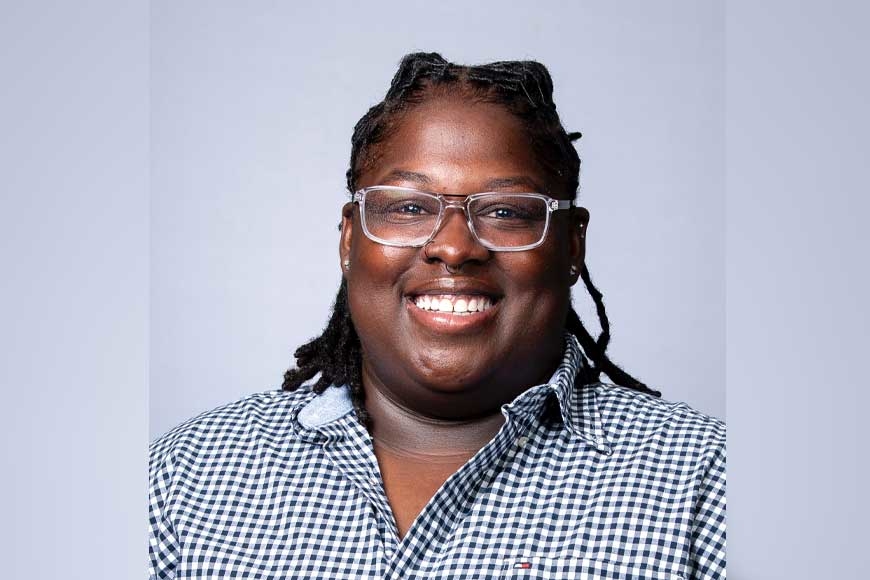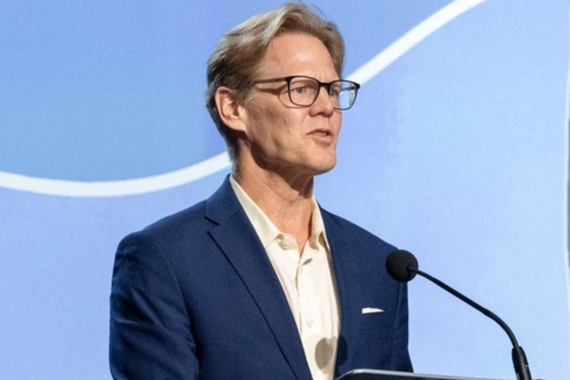Mi’Chael N. Wright on the Digital Paradox for Young Black Girls
“I don’t know why I ever thought it didn’t matter, but it’s going to matter. And even if it doesn’t matter to someone, it’ll matter to me. And that’s enough.”
As a PhD candidate drawn to explore an ever-expanding digital universe, Mi’Chael N. Wright at first had no idea what research would make her stand out. Getting her foot in the sociology field was crucial. But as a Black person working to build better and healthier communities, her research focus became less about what subject would get approval and more about what matters most to her. Wright’s project looks into the nuances of online spaces and examines their impact on the development of young Black girls.
A New Opening
Wright found her way into sociology the same way many others have—the right class and the right professor at the right time. The professor of her first undergraduate sociology class at the University of California in Santa Barbara, Dr. Victor Rios, “was just really relatable. He's got Vans on and a t-shirt and a blazer and I'm like, wow, I haven't had a professor like this.”
Before, sociology didn’t mean much to Wright; it was just another study of people—another type of science. But everything changed after that class. “We have this concept of what sociology is, like how we study people,” Wright says, “but it’s also personal. It’s how you talk, how you get together in groups, and how your experiences have led you to where you are right now. And I think from there, I was interested because it just felt so open.”
During her time as an undergrad, Wright had a newfound appetite and respect for sociology. Years later, after getting her master’s degree in sociology and criminology, Wright would be the recipient of two fellowships: one from the American Society of Criminology’s Division of People of Color and Crime, and another with the Johns Hopkins Bloomberg School of Public Health as a health policy research scholar. She also holds the same position at the Robert Wood Johnson Foundation.
From Online to Offline
The internet has slowly become a world of its own, rarely explored and full of human culture to study. For sociologists like Wright, the digital world is constantly growing. “I think it’s easy to feel like the internet is new,” Wright says, “which it is. But, if you track the steps [of its development], it’s a bizarre concept and things are always changing.”
Since online communities are somewhat undefinable, researching them can be a considerable feat. The phone in your hand feels a lot heavier when you know that billions of people—both dangerous and entertaining—are in it. “I’ve seen how Black girls can live online in a safe space, while also recognizing that it is truly a hostile space,” Wright explains. “You can only control the online so much.”
In a way, life online becomes a paradox of safety and danger, especially for marginalized women of color. Wright recognized this after the election in 2016, when certain spaces online became even harsher to navigate for young Black women. “There [were] a lot of people talking about things changing,” Wright says, “and I’m wondering what that means for people who look like me.” As to how Black women adjust to living in a heavily online-influenced world, and how they find themselves in these spaces, Wright hopes to answer that with her research.
“With access to the internet,” Wright says, “you can learn and become whoever you want to be, and there are people there who will help you along the way. And that was just really interesting to me.”
“I'm really interested in taking our traditional sociological perspectives,” Wright points out, “and seeing how they play out online. Which—I think—isn’t a far-fetched idea because we live online now.” With Wright’s research, we can begin to see all the lines that connect communities on the internet, from Twitter hashtags to social media profiles. And starting with the online Black community is Wright’s entry into the future of digital sociology.
“[The internet] is about fun, and jokes, and games,” Wright says, “but it’s also a way to communicate on a larger scale. We can’t pretend that it doesn’t affect our offline lives anymore.”
It Matters
Before beginning her research, Wright had met up with Monique Morris, an author, educator, and activist. Morris was in town to talk about her book, Push Out, a story about Black girls being unjustly criminalized in schools. “And I had asked her,” Wright says, “‘I’m thinking about doing my work on Black women and Black girls, but what if people don’t care?’”
In education and academics, there is often a focus on white people. If there is a problem that doesn’t involve white people, it can be difficult to gain attention. “And I remember just feeling like it was a hard question to ask,” Wright says, “because it made me feel like if I wanted to go far, I would have to study something involving white people.”
Sometimes, though, we are delightfully wrong. “[Morris] signed my book,” Wright says, “and I opened it to see that she wrote, ‘For our girls, because we matter.’ And I’ll never forget holding onto that moving forward.”
Mi’Chael N. Wright is not only an inspiring figure for Black youth, she’s part of the future of digital sociology. In a world where words can be shared with a tap on the screen, her insight and knowledge could help us navigate the ever-changing landscape of the internet while making it easier for girls that look like her to grow up safely.
“My research is important because it matters to me,” Wright says, “and when young Black girls see my work, they know that someone wants to hear and tell their story. And they’ll walk away feeling like they matter."



